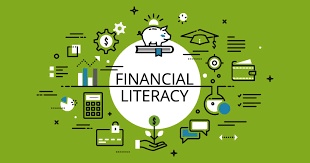Financial literacy helps you make smarter money choices. It also protects you from identity theft and other fraud. You can become financially literate by opening the right bank accounts, saving and investing, paying off debts and working toward financial goals.
It can help you sleep better at night without worrying about debt payments, avoiding predatory lenders and saving for retirement. You can improve your financial knowledge by reading articles online or attending free workshops.
Budgeting
Having a good relationship with money is one of the most important skills people should have. It can help them get ahead in life and avoid financial difficulties like credit card debt, student loans and inadequate retirement savings. It can also help them make wise investment decisions.
Financial literacy can start as early as age 7 and continues throughout adulthood. It focuses on the knowledge and habits you develop around spending, saving, investing and giving. It helps you achieve your goals, whether that is paying off a mortgage or building wealth to pass on to family members. It also allows you to navigate life events, such as a sudden job loss or medical emergency. It can even help you make better decisions about how to spend your inheritance.
Savings
Just like you need to know how to read to drive a car or fill out a job application, you need financial literacy to survive. It can help you monitor your money, avoid mountains of debt and save for the future.
Being financially literate means understanding how to budget, invest and save. In addition, it teaches you to differentiate between needs and wants. It also helps you avoid fraudulent scams and attain long-term financial goals.
Studies have shown that people who are less financially literate make more mistakes with their money. They are also less likely to have a checking account or an emergency savings fund. Moreover, they are more likely to invest in risky assets. They may even pay higher mortgage broker fees.
Investing
Today, individuals are exposed to an incredibly broad array of financial products and services, including credit cards, mortgages, student loans, insurance policies, and self-directed investment accounts. They must be able to understand the tradeoffs associated with these products in order to make informed decisions about their financial decisions.
Understanding the key components of investing allows people to increase savings and investments while reducing debt and borrowing. It also helps them plan for the future, especially in terms of education and retirement.
Studies examining whether or not financial literacy affects saving behavior are generally inconclusive. Bernheim, Garrett, and Maki's 2001 study found that financial literacy courses did not influence saving, but subsequent research has encountered econometric problems such as non-random sampling, response bias, and simultaneity.
Taxes
Financial literacy is the ability to understand your business’ finances and all money-related activities. This knowledge will help you run your company more effectively and make wise decisions. It will also allow you to manage your debts and keep records more efficiently. It will also give you a better grasp of how to negotiate with suppliers and contractors.
While some studies have measured financial literacy with respect to a number of different concepts, other researchers have focused on specific subcomponents such as tax literacy (Chardon et al., 2016a, b). These findings suggest that people who are poor in their understanding of taxes may be less likely to comply with tax regulations. This lack of compliance is usually unintentional, but can lead to a sense of injustice and distrust of the government.
Insurance
It's important to be financially literate in order to save money, make wise investment choices and build wealth. It's also a great way to protect your financial interests against predatory lenders. For example, if you're considering taking out a credit card or a mortgage, being financially literate can help you understand the terms of the loan before agreeing to it.
This study reveals that insurance literacy significantly and positively influences insurance inclusion. Using a social learning theory framework, the results show that people acquire insurance knowledge through interaction with their societies and that this acquired information influences their behaviour and attitude towards insurance. This is in line with prior studies that have established a strong association between financial literacy and insurance inclusion. Moreover, this research contributes to the nascent literature on insurance literacy by examining its individual components (knowledge, skills and attitude). The findings indicate that these factors are significant predictors of insurance inclusion.


No comments yet